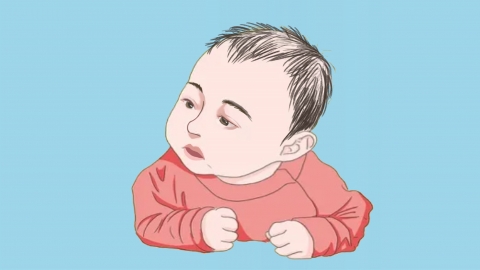What are the most common diseases in pediatrics?
Generally speaking, there is no such thing as the least common pediatric diseases. More common pediatric diseases include colds, pneumonia, diarrhea, asthma, hand-foot-and-mouth disease, etc. If discomfort occurs, timely medical consultation is recommended. The detailed analysis is as follows:

1. Common Cold
Colds are often caused by viral infections, such as rhinovirus and influenza virus. Because children's immune systems are not fully developed, they are susceptible to viral invasion. Symptoms include fever, cough, runny nose, and nasal congestion. Infants may also display irritability, crying, and reduced appetite. Patients may take medications such as Pediatric Paracetamol, Chlorpheniramine and Noscapine Granules, Ibuprofen Suspension, Pediatric Qinggan Ling Tablets, etc., as directed by a physician.
2. Pneumonia
Pneumonia may be related to infections such as bacteria, viruses, or mycoplasma. Children have weaker respiratory defenses, making it easier for pathogens to invade the lungs and cause inflammation. The main symptoms include fever, cough, and rapid breathing. Treatment varies depending on the pathogen; for bacterial pneumonia, medications such as Amoxicillin Clavulanate Potassium, Cefazolin Sodium for Injection, and Cefixime Tablets may be used under medical guidance.
3. Diarrhea
Diarrhea may be caused by infectious agents, improper diet, abdominal cold exposure, and other factors. Children's intestinal functions are immature and thus more susceptible to disturbances. Symptoms include increased frequency of bowel movements, changes in stool consistency, such as loose or watery stools or stools resembling egg drop soup, and may also include vomiting, abdominal pain, and fever. Treatment may involve medications such as Oral Rehydration Salts Powder, Smectite Powder, Bifidobacterium Quadruple Viable Tablets, etc., as directed by a physician.
4. Asthma
Asthma may be related to genetic and environmental factors. Children have narrower airways, which are more prone to spasm during inflammation. During an attack, symptoms include wheezing, coughing, shortness of breath, and chest tightness, often worsening at night or in the early morning. Treatment involves medications such as Budesonide Nasal Spray, Salbutamol Aerosol, and Compound Ipratropium Bromide Solution for Inhalation.
5. Hand-Foot-and-Mouth Disease
Hand-foot-and-mouth disease may be caused by enteroviruses. It commonly affects children under 5 years old and spreads through close contact. Symptoms include blisters or ulcers on the hands, feet, mouth, and other areas, possibly accompanied by fever, fatigue, and decreased appetite. Medications such as Kangfuxin Solution, Ibuprofen Sustained-release Capsules, Paracetamol Tablets, etc., may be used under a doctor's guidance.
In daily life, it is advisable to eat more fresh vegetables and fruits, which can help improve children's immune system.







